
Lucy Kaplansky is an American folk musician based in New York City. Kaplansky has a PhD in clinical psychology from Yeshiva University and plays guitar, mandolin, and piano.

John Gorka is an American singer-songwriter. In 1991, Rolling Stone magazine called him "the preeminent male singer-songwriter of what has been dubbed the New Folk Movement."
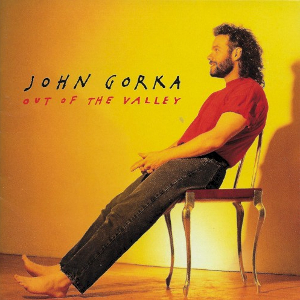
Out of the Valley is a 1994 album by contemporary folk singer-songwriter John Gorka. This is Gorka's fifth album and unlike the previous four recorded in various places in the northeastern United States, Out of the Valley was recorded at Imagine Sound Studios in Nashville, Tennessee. This is also the first of several Gorka albums to employ the talents of guitarist/producer John Jennings.
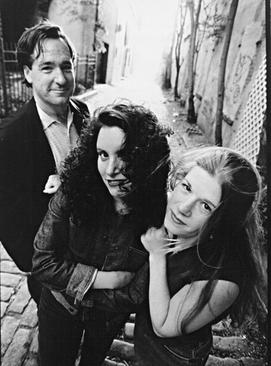
Cry Cry Cry was a folk supergroup, consisting of Richard Shindell, Lucy Kaplansky, and Dar Williams. The band released an eponymous album of cover songs on October 13, 1998.

Writing in the Margins is the tenth studio album by folk singer-songwriter John Gorka. It was released on July 11, 2006, by Red House Records and debuted at number one on the Folk Music Radio Airplay Chart. One departure from previous recordings is the inclusion of a couple of cover songs that blend nicely with Gorka's own compositions. Gorka received some encouragement from Nanci Griffith to record Townes Van Zandt's "Snow Don't Fall", and pays tribute to a personal hero by covering Stan Rogers' "Lockkeeper". Gorka also shares writing credit with his wife, Laurie Allman, on several tracks.
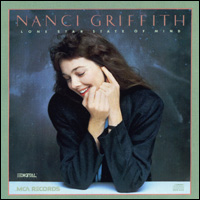
Lone Star State of Mind is the fifth studio album released by American musician Nanci Griffith, and her first album for MCA Records. With the album, Griffith's music took a turn from her original folk music base into more commercially viable country music. For this album, she enlisted the talents of veteran country producer Tony Brown. The album garnered her first appearance on the Billboard Country charts, rising to No. 23 on the Country Albums chart, and was her highest-charting album on the chart. It was also a massive success in the United Kingdom, where it topped the country albums chart and spent over a year in the top 20. The title track, "Lone Star State of Mind," became the first of only three Griffith singles to enter the Top 40 of the Billboard Hot Country Singles chart. It peaked at No. 36, while two other singles from the album, "Cold Hearts/Closed Minds" and "Trouble in the Fields", reached No. 64 and No. 57 respectively. The song "From a Distance" would go on to become a major pop hit when covered by Bette Midler in 1990.
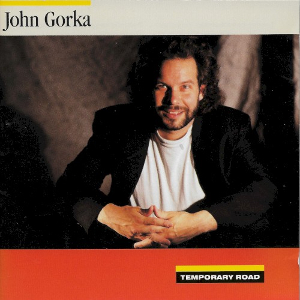
Temporary Road is the fourth album by folk singer-songwriter John Gorka. In 1992 there was some critical consensus that Gorka was one of the leading male voices of the "new folk" movement. As titles like "Looking Forward" and "Gravyland" might imply, the album has an overall optimistic tone. High Street Records produced videos for the upbeat "When She Kisses Me" and "I Don't Feel Like a Train", both of which received some airplay on CMT.
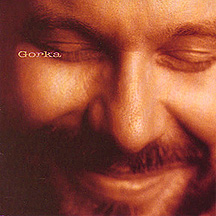
After Yesterday is the seventh studio album by folk singer-songwriter John Gorka. It was released on October 20, 1998, by Red House Records. The album marked Gorka's return to Red House, after five albums with Windham Hill/High Street Records. This was heralded as a homecoming-of-sorts as Red House had issued Gorka's debut, I Know in 1987. The album also marks several changes in the life of the artist himself. Themes of parenting and family life first heard here on songs such as, "When He Cries" and "Cypress Trees" have now become a regular feature of Gorka's subsequent albums.

The Company You Keep is the eighth studio album by folk singer-songwriter John Gorka. It was released on March 13, 2001, by Red House Records.

Between Five and Seven is the sixth studio album by folk singer-songwriter John Gorka. It was released in August 1996. It is the last of the five albums Gorka recorded for Windham Hill/High Street Records before returning to the smaller, Red House label. Gorka produced the album with John Jennings who also produced Gorka's previous record, Out of the Valley. Unlike the previous record made in Nashville, Tennessee, the recording was done at Paisley Park Studios, Chanhassen, Minnesota and the instrumentation has been described as "more acoustic, less pop-oriented." Paisley Park is southwest of Minneapolis and is the studio designed and owned by the artist, Prince.
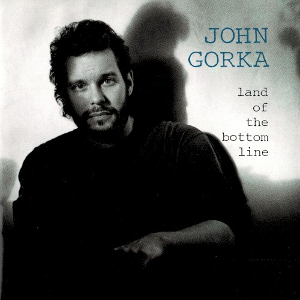
Land of the Bottom Line is the second album by contemporary folk singer-songwriter John Gorka. The album was also Gorka's major label debut for High Street Records/Windham Hill Records. The album was highly acclaimed by critics at the time, and continues to be cited by some as Gorka's finest work. The album's fifteen tracks and near hour-long length also provided an unusually large amount of music for a recording of that era. As Sing Out! editor Mark Moss noted in a review, the topics covered run "the gamut of John's favorite subjects: love, hard luck, local characters, and more."
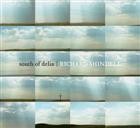
South of Delia is the seventh solo album by American folk singer-songwriter Richard Shindell. South of Delia is a cover album. Although he himself is sometimes described as a "songwriter's songwriter," covers are not new to Shindell. In addition to recording a few on his previous solo albums, he was also one third of the folk supergroup / cover band Cry Cry Cry. On South of Delia, Shindell covers songs from several songwriting legends, including Woody Guthrie and Bob Dylan, as well as some from younger up-and-coming writer/performers, such as Jeffrey Foucault and Josh Ritter.

Sparrows Point is the 1992 debut album of singer-songwriter Richard Shindell.

The Red Thread is the fifth solo album by New York City singer-songwriter Lucy Kaplansky, released in 2004.

Every Single Day is the fourth solo album by American singer-songwriter Lucy Kaplansky, released in 2001.
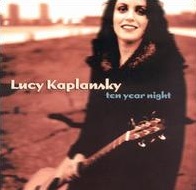
Ten Year Night is the third solo album by American singer-songwriter Lucy Kaplansky, released in 1999.

Flesh and Bone is the second album by American singer-songwriter Lucy Kaplansky, released in 1996. The original release of the CD contained a hidden "Track 0" containing a cover of the Beatles' "I've Just Seen a Face" that could be accessed on some players by stepping back a track from Track 1.

Not Far Now is Richard Shindell's eighth studio album and sixth album of original material.

Red Horse is a collaboration by independent folk singer-songwriters Eliza Gilkyson, John Gorka, and Lucy Kaplansky. It is both the name of the studio album released by the trio on Red House Records in July 2010, and the name under which they have toured and performed in concert together as a supergroup.

So Dark You See is the eleventh studio album by folk singer-songwriter John Gorka, released on October 13, 2009. The album offers eight new examples of Gorka's own lyrical songwriting, two instrumental tracks, poetry of Robert Burns and William Stafford performed and set to music by Gorka, covers of songs by fellow folk musicians, Utah Phillips and Michael Smith, and Gorka's take on the blues standard, "Trouble in Mind".




















